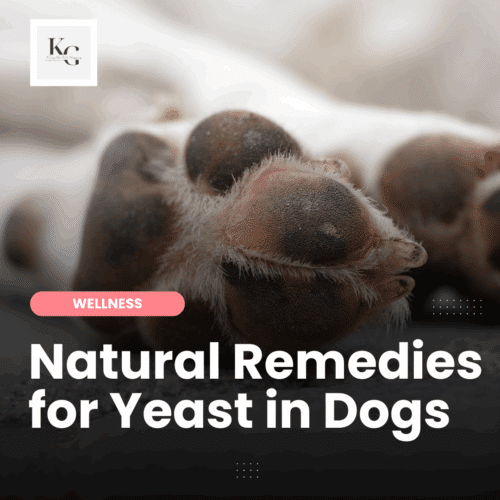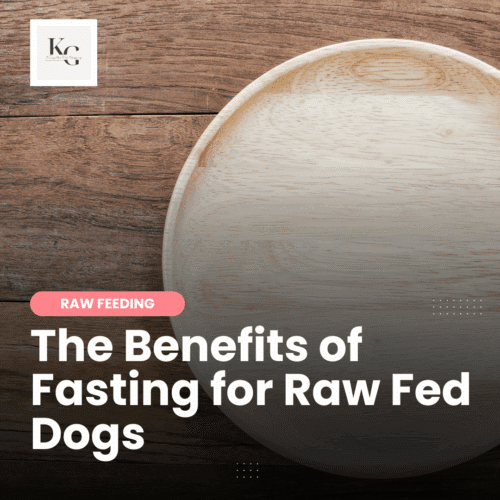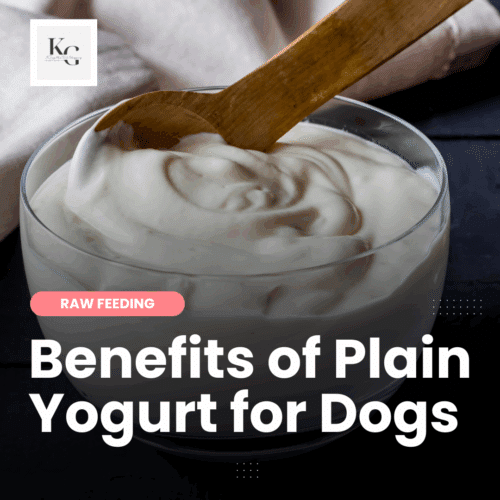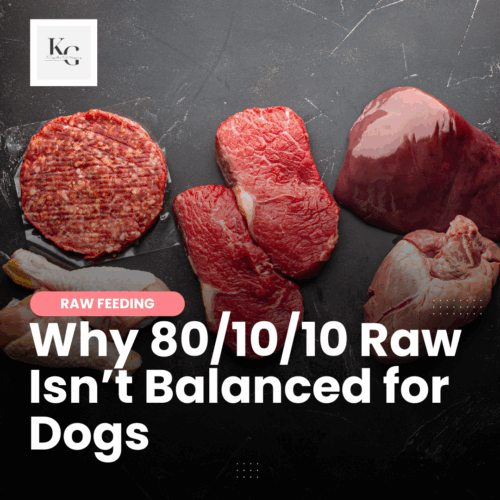Keep the Tail Wagging is supported by pet parents. I occasionally earn a commission (at no additional cost to you) when you click through an affiliate link to one of my favorite products. Thank you for your support. Read More
Chia, hemp, and flaxseeds are nutrient-dense superfoods known for their health benefits. Each has unique properties that can contribute to a balanced diet and overall well-being. But is this the case for our dogs as well?
Someone recently asked me to explain the difference between flaxseeds and flaxseed oil. This question led me down a rabbit hole so deep that I ended up tossing the ground flaxseed powder I had along with the chia and hemp seeds.
Omega 3 Fatty Acids in Seeds
One of the main reasons people recommended chia, flax, and hemp seeds was the Omega-3 fatty acids they brought to the diet. But, I can't entirely agree that these are viable sources for dogs.
When alpha-linolenic acid (ALA), a type of omega-3 fatty acid, is consumed, the body can convert it into eicosapentaenoic acid (EPA) and docosahexaenoic acid (DHA), which are the more biologically active forms of omega-3 fatty acids. However, the conversion rate of ALA to EPA and DHA in the body is limited and inefficient, with varying estimates ranging from as low as 1% to up to 9% for EPA and even lower for DHA, which is why plant-based sources of Omega-3 fatty acids aren't recommended for dogs.
Due to this low conversion rate, obtaining EPA and DHA directly from dietary sources like fatty fish (salmon, mackerel, sardines) or salmon oil (I use Life Line Pet Products) is generally recommended to ensure adequate intake of these essential fatty acids.
While sources of ALA, such as chia seeds, flaxseeds, and hemp seeds, are beneficial for overall health, they may not provide significant amounts of EPA and DHA compared to direct food sources or supplements that contain EPA and DHA.
Benefits of Chia Seeds, Hemp Seeds, and Flaxseeds
So, if our dogs aren't gaining the right Omega 3 fatty acids, what are the benefits of these seeds?
Chia Seeds
- Chia seeds are rich in fiber, antioxidants, and minerals like calcium and magnesium.
- They are known to support digestive health, heart health, and weight management and can help stabilize blood sugar levels.
- Chia seeds have a high antioxidant content that can help reduce inflammation and combat oxidative stress.
Hemp Seeds
- Hemp seeds are a great source of protein, vitamin E, and minerals like magnesium and zinc.
- They support heart health, reduce inflammation, boost immunity, and aid muscle recovery.
Flaxseeds
- Flaxseeds are rich in lignans (functions as antioxidants), fiber, and antioxidants.
- They are known to support heart health, lower cholesterol levels, reduce inflammation, and improve digestive health.
Flaxseeds vs. Flaxseed Oil
Flaxseed provides additional protein, fiber, nutrients, and antioxidants. Flaxseed oil is often recommended (for humans) for the Omega-3 fatty acids. However, because the ALA needs to convert to EPA and DHA, the amount of fatty acids absorbed is minimal. Therefore, I don't believe flaxseed oil offers many benefits for dogs.
How to Prepare Seeds for Consumption
Seeds have a protective shell that reduces or prevents the absorption of the nutrients they bring to the diet. Therefore, it's essential to know the best way to prepare the seeds for consumption
Chia Seeds
Make a chia seed pudding by mixing the chia seeds with filtered water, bone broth, or raw goat's milk. Let it sit in the refrigerator overnight to thicken. I add a teaspoon to my dogs' meals.
Hemp Seeds
Using shelled hemp seeds (also called hemp hearts), add a teaspoon to meals or make “hemp milk” by blending 1/2 cup of shelled (hulled) hemp seeds with 3-4 cups of filtered water and a pinch of sea salt in a high-speed blender and mix until well combined.
Flaxseeds
It's best to grind flaxseeds (or purchase ground flaxseeds) for dogs to absorb the nutrients; otherwise, the seeds will pass through their digestive system. Once ground, flaxseeds can be added to meals.
Dosage for Dogs
You can search online and find various dosage recommendations. If you work with a nutritionist or holistic veterinarian, I suggest asking them for their thoughts since they know your dog.
For my dogs, I use the following dosage amounts:
- Chia Seeds – I add one teaspoon of chia pudding to my dogs' meals, mixing it into their raw blend as a source of fiber and antioxidants.
- Hemp Seeds – I add 1/2 to one teaspoon of shelled or ground hemp seeds to my dogs' meals to reduce inflammation and as a source of fiber.
- Flaxseeds – I add 1/4 to 1/2 teaspoons to my dogs' meals to reduce inflammation and as a source of fiber.
Purchasing and Storing Seeds
I purchase certified organic products, including chia and hemp seeds from Costco and organic ground flaxseeds from a local store. This deep dive taught me that these seeds don't have an extended shelf-life.
- Chia, hemp, and flaxseeds should be stored in airtight containers in a cool, dark place to prevent oxidation. They can last for several years if stored this way and kept in the original package.
- When buying a large bag of seeds, you can extend their shelf life by storing them in the refrigerator or freezer.
- Chia pudding and hemp milk last up to five days in the refrigerator.
I used to transfer my seeds to a sealed glass container. Today, I leave them in the original package until I open the bag. At that point, I store the seeds in the fridge.
Final Thoughts
Chia seeds, hemp seeds, and flaxseeds offer many health benefits. But after reading more about these whole foods, I believe chia and hemp seeds are the best investments for my dogs. I add them to my dogs' diet as a natural source of fiber and antioxidants, and I appreciate the anti-inflammatory benefits.
I'm not suggesting flaxseeds aren't beneficial for dogs; they're just not high on my list when shopping for seeds.






I found this article to be very informative and helpful. The hemp seeds not only aid in joint pain (inflammation). There are other benefits as well, 1. aids in digestion and promotes stomach health, 2. excellent source of protein, 3. a good source of vitamins A B D & E, 4. contains different minerals like sodium, calcium, iron, sulfur, potassium, phosphorus, & zinc.
Ground flax seeds are also energetically cold like cucumbers. They are good for worm prevention and balancing hormones for de-sexed pets. However, for cool dogs, they make the coolness worse, and if one wants the hormone balancing, IMO, getting a supplement with the active lignans is a better choice. There are other ways to prevent worms that don’t involve cooling herbs.
Great post!